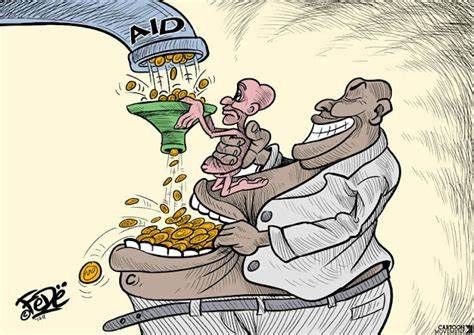
In many African countries, corruption among political leaders remains a persistent and pervasive issue. This phenomenon not only stifles economic growth but also undermines public trust and hinders the development of democratic institutions. Understanding why corruption persists among African leaders involves examining a range of historical, socio-political, and economic factors.
Historical Legacy and Institutional Weaknesses
One significant factor contributing to corruption is the colonial legacy. Many African countries inherited weak and exploitative institutions from their colonial rulers, which were designed to serve the interests of the colonizers rather than the local populations. Post-independence, these institutions were often ill-equipped to promote transparency and accountability, creating a fertile ground for corrupt practices.
Economic Instability and Resource Dependency
Economic instability and dependency on natural resources also play critical roles in fostering corruption. Many African nations are rich in natural resources like oil, minerals, and timber. However, the so-called "resource curse" often leads to a concentration of wealth and power in the hands of a few, providing ample opportunities for leaders to engage in corrupt activities. Additionally, economic instability and poverty drive many leaders to use their positions for personal gain, seeing corruption as a means to secure their financial future.
Political and Social Pressures
Political pressures and the desire to maintain power further contribute to corrupt behaviors. In many cases, leaders use state resources to buy political support, reward loyalists, and suppress opposition. This patronage system creates a cycle of dependency and corruption, as leaders need to continually engage in corrupt practices to stay in power.
Lack of Accountability and Legal Enforcement
A significant factor is the lack of effective accountability mechanisms and legal enforcement. In many African countries, institutions such as the judiciary, police, and anti-corruption bodies are either weak or compromised, making it difficult to hold leaders accountable for their actions. Without robust checks and balances, corrupt leaders can act with impunity.
Cultural Factors and Social Norms
Cultural factors and social norms also play a role. In some societies, the concept of using one's position to benefit family or clan is seen as acceptable or even expected. This cultural acceptance of nepotism and favoritism can perpetuate corrupt practices.
Consequences of Corruption
The consequences of corruption among African leaders are far-reaching. It undermines economic development by diverting public resources away from essential services like healthcare, education, and infrastructure. It erodes public trust in government, leading to political instability and, in some cases, violent conflict. Moreover, corruption hampers efforts to build effective and transparent governance systems, making it challenging to address the continent's many socio-economic challenges.
Efforts to Combat Corruption
Despite these challenges, there are efforts underway to combat corruption in Africa. International organizations, civil society groups, and some national governments are working to strengthen institutions, promote transparency, and foster a culture of accountability. Anti-corruption campaigns, legal reforms, and increased public awareness are crucial steps in this ongoing battle.
In conclusion, the issue of corruption among African leaders is complex and multifaceted. Addressing it requires a holistic approach that tackles the root causes, strengthens institutions, and promotes a culture of integrity and accountability. Only through sustained and collective efforts can African nations hope to overcome this pervasive challenge and build a more prosperous and just future for their citizens.